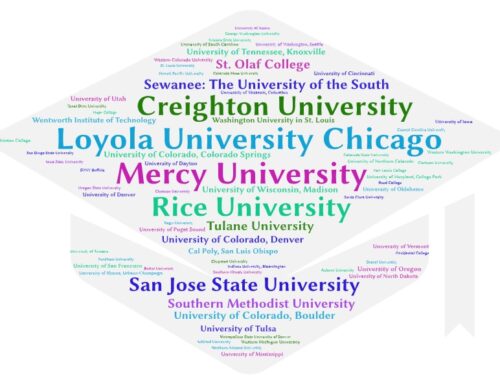 A recent Forbes article highlighted a common problem among our nation’s middle and even upper-middle class: an inability to qualify for need-based financial aid combined with the lack of enough funds to pay full-price for a private college education. Many of the families with whom I work are in this exact situation: the parents make too much money to get need-based aid but not enough to afford the $50,000 or $60,000 per year price tag at the U.S.’s most expensive colleges. And they don’t want their kids to have to take out tens or hundreds of thousands of dollars in loans to make up the difference.
A recent Forbes article highlighted a common problem among our nation’s middle and even upper-middle class: an inability to qualify for need-based financial aid combined with the lack of enough funds to pay full-price for a private college education. Many of the families with whom I work are in this exact situation: the parents make too much money to get need-based aid but not enough to afford the $50,000 or $60,000 per year price tag at the U.S.’s most expensive colleges. And they don’t want their kids to have to take out tens or hundreds of thousands of dollars in loans to make up the difference.
The Forbes article suggests a few strategies to bridge the gap between the financial aid families receive and what they can afford, including putting money in a college savings account like a 529 plan and applying for scholarships that are not based on need. The article states that students can begin applying for such scholarships as early as their freshman year of high school, and since many of these awards are very small, students should start applying early so that by senior year they will have collected a sizeable sum of money.
These are good suggestions, but the Forbes article neglects to mention one of the largest sources of non-need-based financial aid: colleges. Many colleges offer scholarships that are based on “merit”, which can include grades, test scores, activities, leadership, community service, and/or other factors. And unlike private scholarships, which usually are no more than a few thousand dollars and often are non-renewable, merit scholarships from colleges can be as much as full tuition and can be renewed for up to four years.
This is why, at Discovery College Consulting, we focus on helping our students find and apply for these types of scholarships. To date, our students have received up to $33,000 per year ($132,000 over four years) in merit scholarships from colleges.
It’s important to note that colleges in the Ivy League and some other highly selective schools do not offer merit-based aid. So for families who need such aid, sometimes students have to set their sights a little lower. If students are willing to consider schools that are less selective, sometimes only slightly less selective, they will have the opportunity to get merit aid.
To assess your chances of receiving a merit-based scholarship from a particular college, compare your GPA and test scores to the average GPA and test scores of students who have been accepted to that college. If your numbers are above the averages, you have a good chance of getting merit money. (That’s assuming the school’s merit scholarships are based solely on grades and/or test scores.) Another thing that can help increase your chances for merit scholarships is if you live in a state that no or few of the college’s current students call home.
Some colleges automatically consider students for merit scholarships when they apply for admission, while other colleges require students to complete a separate application or applications. So as you’re considering schools and deciding where to apply, make sure you check the requirements for applying for merit money. You wouldn’t want to miss out because you forgot to fill out a special form or write another essay.
With a little research and some time and effort, students can receive sizable merit scholarships that will help defray the cost of their college education, which will benefit both them and their parents. Sometimes, students receive so much merit-based aid from a private school that it actually becomes cheaper than attending an in-state public college.





